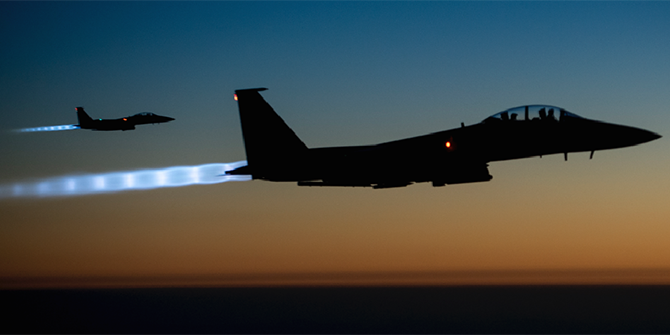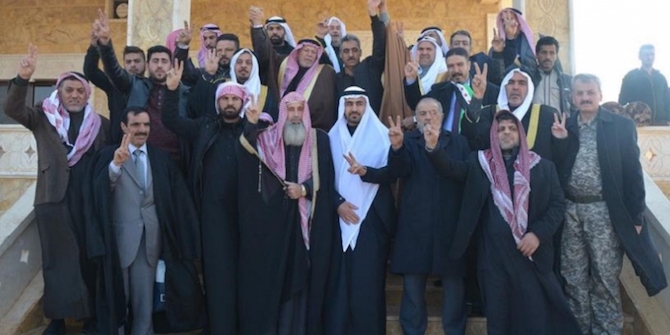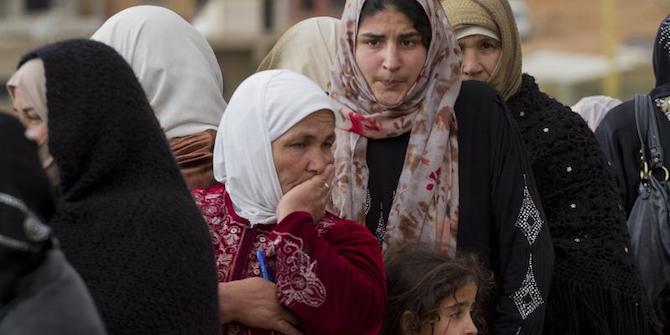by Ranj Alaaldin
Friday night’s terrorist attack in Paris was horrific. If the Charlie Hebdo attacks failed to do so, the attacks on Friday will have almost certainly provided a stark reminder that the terrorist threat from ISIS and its sympathisers is a real and immediate threat to us all.
The fact that the Paris attacks took place on the same day that Kurdish forces, with US air support, took control of Sinjar in northern Iraq is no coincidence. It is also no coincidence that the attacks took place one day after deadly bombings in Beirut and probably no coincidence either that the attackers hit the streets of Paris on the same day that Jihadi John, the ISIS propagandist and executioner was killed by way of a drone strike in Raqqa.
ISIS is getting desperate as it attempts to divert attention away from its losses. In losing Sinjar, it is no longer able to repair and rebuild as effectively as it used to. It is also facing increased discontent from the populations it occupies in Syria and Iraq. The defeats it has suffered on multiple fronts over the past month, as well as its losses more generally over the past year, show that the group is not the invincible force that it likes to think it is.
But it is important to make all this count. The international community, more than a year since the start US-led campaign against ISIS, is still yet to utilise its military capacity to full effect. To make the momentum against ISIS count, the jihadists must not be given the breathing space that allows them to re-group and re-consolidate their grip.
That requires escalating attacks on ISIS in both Iraq and Syria. ISIS is a transnational organisation that functions on the basis of territory and resources from the two countries. It is in Syria where its main apparatus is located, where its so-called capital, Raqqa is found, and where it is able to launch attacks from elsewhere in the region, as well as train and indoctrinate recruits.
It is unclear if the Paris attacks were directly orchestrated by ISIS’s central command in Syria and Iraq but, regardless, the stronger it is in those countries the stronger its capacity to recruit and inspire similar attacks in the future.
Interventions in the Arab and Islamic world over the past decade suggest thinking twice before doing so again. But inaction has had its consequences and has led to the worst humanitarian crisis in a generation. ISIS is a threat to us at home as much as it is to the region and the people it currently occupies in Syria and Iraq. The macabre attacks in Paris show how the local and international overlap considerably.
The West has plenty of catching up to do. Before seizing territory in northern Iraq, last year in June, ISIS operated with impunity and had at least three years’ worth of space to flourish, namely by taking advantage of ungoverned territory in Syria as well as weak and impoverished populations.
An intensification of the campaign will allow the West to define and assert its role in the war on ISIS, therefore providing conviction and direction to the campaign against extremism, both at home and abroad.
At the same time, whilst the urge to neutralise ISIS will now be greater than ever, airstrikes on their own will not be enough. Support for local actors doing the fighting and dying is extraordinarily insufficient. That includes Syria’s Kurds and the Democratic Union Party (PYD), which has worked well with the anti-ISIS campaign and has proven to be the most effective pro-Western force, as well as the hundred of thousands Syrian rebels fighting both the Assad regime and ISIS.
These rebels have sworn to continue the fight until Assad is removed from power, regardless of the transition plan announced over the weekend in Vienna. That means that focusing only on ISIS is akin to taking one step forward only to take two steps back.
As Neil Quilliam of Chatham House stated a while ago, striving to defeat ISIS and not the Assad regime would also ‘reinforce the view currently held among Syrians that, despite significant humanitarian support, the UK government simply prioritises the fight against ISIS over the lives of Syrians’. More than 140,000 people have died in the conflict, mostly at the hands of the regime whilst ISIS, by comparison, has killed several thousand. In other words, focusing on ISIS, whilst ignoring the Assad regime will yield short-term gains that will later translate into long-term costs. These costs will end up giving ISIS or other jihadist groups the chance to re-emerge and once again wreak havoc across the region.
Similarly, to make its gains count, the West should learn from its mistakes in Iraq and Libya and make stabilisation and good governance initiatives a central part of its campaign. ISIS thrives on the lack of institutions, weak or failed states and a volatile and polarised region. Remedying this requires good governance, institution building and reconciliation of divided communities. It also means empowering local humanitarian actors, rather than bureaucrats and officials that lack the know-how and have a record of corruption and incompetence, as we concluded recently during a panel discussion at the Overseas Development Institute.
This will be a drawn out conflict but it can be won. To make the small, although significant gains count, the West must build on them and continue to shift the momentum against ISIS. Defeating it requires matching our words with deeds; a collective effort that ensures ISIS no longer enjoys any breathing space and one that sends a message to its supporters and potential recruits that ISIS is no longer the force for the future that it has for so long been allowed to portray itself as. At the same time, it requires long-term thinking that acknowledges realities on the ground, meaning that you cannot win the war and the peace if the Assad regime is allowed to shape and define the future of Syria.
 Ranj Alaaldin is a doctoral researcher at the London School of Economics and Political Science, where he focuses on Iraq and sectarian conflict in the Middle East. He previously specialised in the law of armed conflict and the use of force and has conducted extensive fieldwork in the MENA region. He has published with the New York Times, Wall Street Journal, the Guardian, Independent and other print and online publications. He is a contributing author to two books, one on the legacy of the Iraq war and the other on the 2011 Libyan uprising, during which he conducted research in Benghazi and Tobruk. He tweets at @RanjAlaaldin.
Ranj Alaaldin is a doctoral researcher at the London School of Economics and Political Science, where he focuses on Iraq and sectarian conflict in the Middle East. He previously specialised in the law of armed conflict and the use of force and has conducted extensive fieldwork in the MENA region. He has published with the New York Times, Wall Street Journal, the Guardian, Independent and other print and online publications. He is a contributing author to two books, one on the legacy of the Iraq war and the other on the 2011 Libyan uprising, during which he conducted research in Benghazi and Tobruk. He tweets at @RanjAlaaldin.







